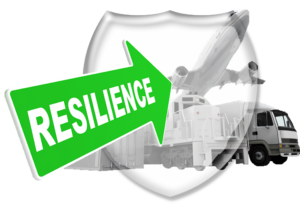Daniel Yergin, chairman of CERA (Cambridge Energy Research Associates), is the author of “Ensuring Energy Security,” an extensive article just published in the March/April 2006 issue of Foreign Affairs. It’s available online , for a nominal fee. Well worth it — his overview is far-reaching and comprehensive. Brief excerpts are available free of charge, with commentary, at QuantLogic.
Yergin’s theme is energy interdependence. His focus is on the need for a resilient energy supply chain — which, in his view, requires much more than just the diversification of supply advocated by Churchill in the years before the First World War, and the management of strategic reserves practiced since the 1973 oil embargo.
A few key excerpts:
…diversification is not enough. A second principle is resilience, a “security margin” in the energy supply system that provides a buffer against shocks and facilitates recovery after disruptions. Resilience can come from many factors, including sufficient spare production capacity, strategic reserves, backup supplies of equipment, adequate storage capacity along the supply chain, and the stockpiling of critical parts for electric power production and distribution, as well as carefully conceived plans for responding to disruptions that may affect large regions. Hence the third principle: recognizing the reality of integration…
A fourth principle is the importance of information. High-quality information underpins well-functioning markets. On an international level, the IEA has led the way in improving the flow of information about world markets and energy prospects… Information is no less crucial in a crisis… governments and the private sector should collaborate to counter panics with high-quality, timely information. The U.S. government can promote flexibility and market adjustments by expediting its communication with companies and permitting the exchange of information among them, with appropriate antitrust safeguards, when necessary.
As important as these principles are, the past several years have highlighted the need to expand the concept of energy security in two critical dimensions: the recognition of the globalization of the energy security system… and the acknowledgment of the fact that the entire supply chain needs to be protected…
The current model of energy security, which was born of the 1973 crisis, focuses primarily on how to handle any disruption of oil supplies from producing countries. Today, the concept of energy security needs to be expanded to include the protection of the entire energy supply chain and infrastructure — an awesome task… None of the world’s complex, integrated supply chains were built with security, defined in this broad way, in mind. Hurricanes Katrina and Rita brought a new perspective to the security question by demonstrating how fundamental the electric grid is to everything else. After the storms, the Gulf Coast refineries and the big U.S. pipelines were unable to operate — not because they were damaged, but because they could not get power.
Energy interdependence and the growing scale of energy trade require continuing collaboration among both producers and consumers to ensure the security of the entire supply chain…
…the lines of responsibility — and the sources of funding — for protecting critical infrastructures, such as energy, are far from clear. The private sector, the federal government, and state and local agencies need to take steps to better coordinate their activities… Markets need to be recognized as a source of security in themselves… markets provide security by absorbing shocks and allowing supply and demand to respond more quickly and with greater ingenuity than a controlled system could… The experience [of Katrina] highlights the need to incorporate regulatory and environmental flexibility… into the energy security machinery…
….energy security… exists in a larger context… Part of [the] challenge will be anticipating and assessing the “what ifs.” And that requires looking not only around the corner, but also beyond the ups and downs of cycles to… the reality of an every more complex and integrated global energy system and the relations among the countries that participate in it.
Complex, critical infrastructure… the need for rules-based systems governing contingency plans, regulatory flexibility, and secure information exchange… the need for public-private cooperation… the demands of managing interdependent global systems in an unpredictable environment… we couldn’t have made a better case ourselves for Enterprise Resilience Management.
There’s much more to Yergin’s article than these excerpts suggest — a far-reaching overview of current geopolitics and its impact on energy security, for example.
Read the whole thing.




